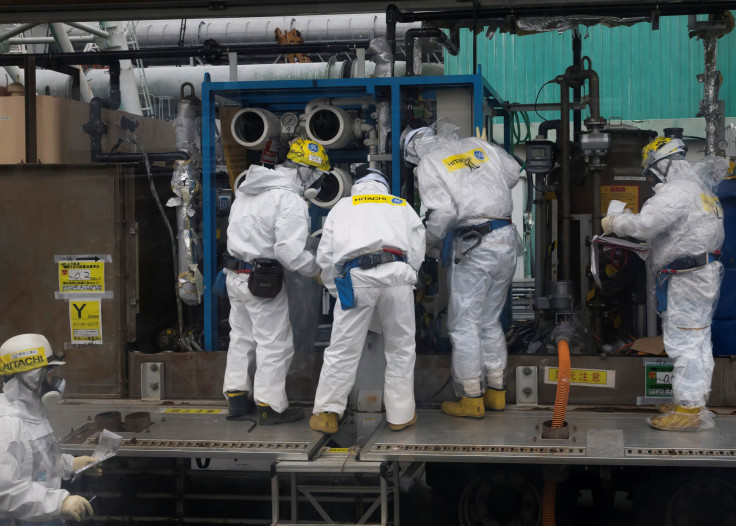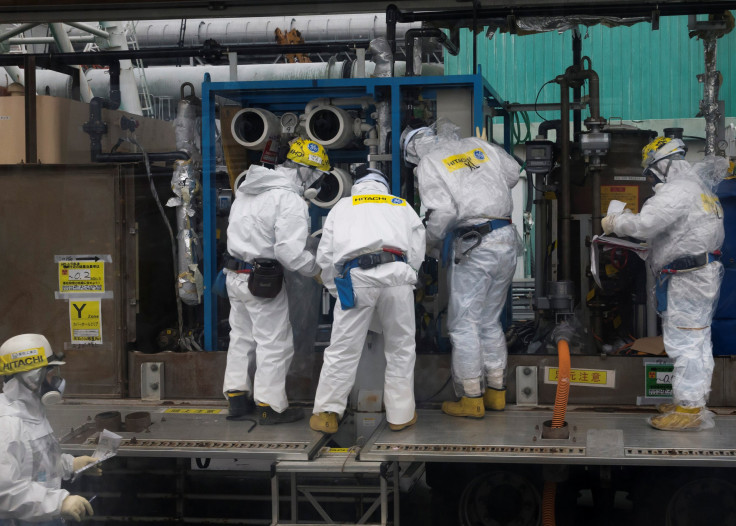Fukushima Nuclear Radiation Workers No Longer Wearing Protective Gear Near Power Plant Reactor

In the midst of an extensive cleanup operation, workers at the Fukushima nuclear power plant in Japan were finally able to shed the heavy protective gear they’ve needed for six years. Workers were able to wear regular uniforms at about 95 percent of the site, the Japan Times reported Saturday.
Officials from Tokyo Electric Power Company Holdings, Inc. (Tepco), the company responsible for the plant’s decommissioning, invited a group of reporters to tour the power plant grounds in recent weeks. About 7,000 employees have worked to remove radioactive debris, cover the tainted soil with nonporous materials like mortar and move tainted water to secure tanks to reduce radiation.
Read: Everything To Know About The Fukushima Nuclear Disaster
“Our near-term goal is to create a place where they can work without worries,” said Daisuke Hirose, a spokesman for Tepco’s decommissioning body, Fukushima No. 1 Decontamination & Decommissioning Engineering Co., told the Japan Times.

Whereas the workers had previously needed to don ultra tight clothing to walk the plant’s grounds, they were now able to roam most of the complex in everyday attire. Officials measured radiation on a nearby hill at only 150 microsieverts per hour, less than the amount received during a round-trip flight between Tokyo and New York.
The full decommissioning of the plant is far from over with officials estimating it would take up to 40 years to complete. But progress was being made off the plant’s complex as well. Officials began welcoming some of the 160,000 residents evacuated from nearby areas back to their homes in April.
Tepco and its employees, along with others, have worked to decommission the plant since a magnitude 9.1 earthquake hit the area in March 2011, knocking the plant’s cooling systems offline and melting down three of its reactors, leaking radiation.
Read: Radiation Inside Fukushima So Destructive, Not Even Robots Can Survive
Workers continued to attempt to decontaminate the plant by removing radioactive waste and dispose of fuel debris inside of one of the reactors, all tasks that require protective garments.
“We have caused it,” Hirose said. “We have to make every effort to create a place to which people want to return. Nobody wants to live where the safety and security of workers are not ensured.”
© Copyright IBTimes 2024. All rights reserved.






















